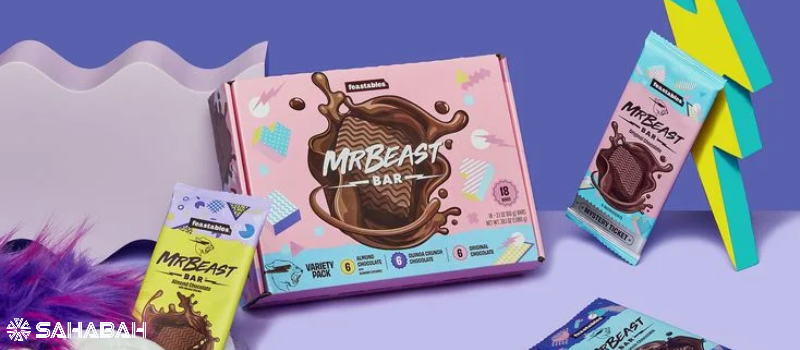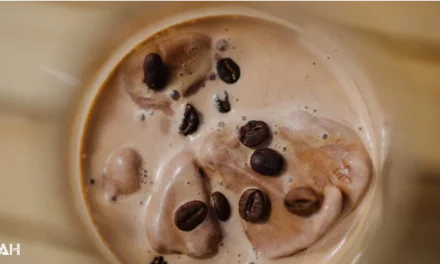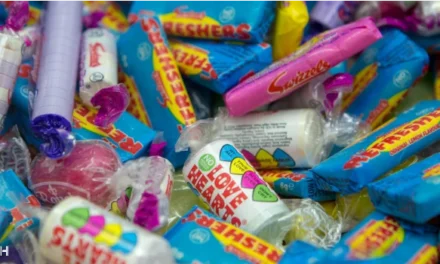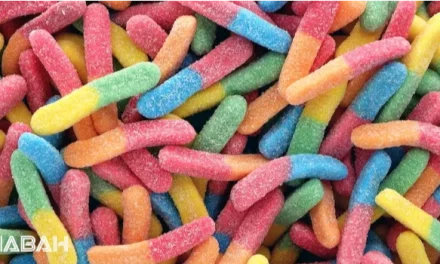Feastables has taken the internet by storm lately, with chocolate bars being featured in viral TikTok videos and marketed by creator MrBeast. But an important question for some consumers is: are Feastables chocolates halal? As interest grows around halal food options, including sweets, let’s take an in-depth look at whether Feastables meets halal guidelines.
What Does “Halal” Mean and What are the Requirements?
Halal is an Arabic word meaning “permissible” or “lawful” when it comes to how food and other products are sourced and prepared. For a food to be certified halal, it must comply with Islamic dietary guidelines and preparation methods per Islamic law.
The major prohibitions according to the Quran include:
- Pork or pork by-products
- Alcohol or intoxicating substances
- Improperly slaughtered meat and poultry
- Carnivorous animals
- Blood and blood byproducts
Additionally, to qualify as halal, food processing equipment must adhere to strict protocols:
- Thorough cleaning between non-halal and halal food production runs
- Preventing cross-contamination through separate storage and handling
- Dedicated halal-only preparation areas in facilities
There are also specifications around hygiene, expiration dates, chemical use, and traceability that certified halal foods must comply with.
To achieve halal certification, suppliers go through audits by accredited halal organizations that vet ingredients sourced, inspect processing facilities, and confirm packaging and labelling follows guidelines. Products that pass display recognizable halal symbols signifying certification.
For observant Muslims, certified halal food is essential – not just to conform with religious beliefs but also to provide assurances around food safety and quality.
Does Feastables Follow Halal Production Guidelines?
As interest grows around whether viral sensation Feastables chocolate bars and other Feastables products are halal-compliant, the company has stated they take halal guidelines seriously even prior to formal certification.
According to Feastables’ CEO in an interview, their chocolate contains no animal by-products like gelatin or alcohol that would rule out halal conformance. All ingredients – including cocoa butter, chocolate liquor and milk – are sourced with halal standards in mind.
Additionally, Feastables facilities are claimed to be routinely audited for contamination risks during chocolate production. Equipment and storage areas are thoroughly segregated and cleaned between varying halal and non-halal batches.
So while Feastables doesn’t explicitly market its viral chocolate bars and gummies as “halal-certified,” the company says it already adheres to key halal food preparation principles in their sourcing, production protocols and quality control.
Feastables’ statements indicate commitment to halal compliance through ingredients used and production processes followed prior to formal certification
For observant Muslim customers wanting guaranteed halal integrity, formal certification by a recognized halal body would provide that validation. But Feastables’ disclosed ingredients and production methods already offer some degree of alignment as an interim measure.
Examining Feastables’ Components for Halal Conformance
So are Feastables chocolates halal? Consumers can more closely examine some Feastables chocolate bar variants through their listed ingredients and preparation details:
Original Chocolate Bar
- Ethically-sourced cocoa butter, liquor and sugar
- Grass-fed milk from halal-certified dairy farms
- No gelatin, toxic contaminants or haram additives
Dark Chocolate Bar
- Single-origin cocoa beans
- Cane sugar instead of corn syrup
- Vegan friendly with no dairy, soy or gluten
- Free of animal products
Quinoa Crunch Bar
- Gluten-free with plant-based chocolate
- Fortified with protein-rich quinoa
- Marked as kosher certified
Almond Sea Salt Bar
- Non-dairy milk chocolate
- Ethically-sourced cocoa
- Roasted California almonds
- Only vegetable-derived emulsifiers
So while full halal certification is still pending in a “timeline” per MrBeast’s recent comments, individual chocolate bar variants do align based on disclosed ingredients and processes. Those wanting 100% certainty should contact Feastables directly through their website or customer service team.
Why Choosing Halal Food Options is Important
Within the Muslim community and beyond, halal foods provide assurances beyond just religious guidelines, signifyng several benefits:
Religious Obligation – Consuming certified halal products is considered a religious duty for over 1.9 billion Muslims worldwide as it adheres to clear Quranic food allowances.
Food Safety – The strict hygiene, processing, and storage standards mean lowered risks of contamination, spoilage or food poisoning events.
Animal Welfare – Halal slaughtering requirements helps promote ethical, humane meat harvesting practices with proper treatment of livestock during their lifecycle.
Sustainability – Halal production standards around health, transparency and fair dealings with suppliers helps promote more sustainable food production systems.
Product Integrity – Halal traceability and supply chain accountability helps prevent substitution with cheaper non-halal ingredients for economic gain.
So even non-Muslims often consider halal branding a sign of overall care and discipline around responsible and ethical farming, harvesting, packaging and delivery – with comprehensive checks against fraud or quality erosion along the way for financial gain.
How Feastables Stacks Against Other Halal Sweets Options
For customers specifically seeking certified halal-compliant sweets and desserts, there are a growing number of specialty delivery brands to consider beyond Feastables:
Haloodies
- Dubai-based company offering halal-certified cookies, sweets, and snacks
- Uses high-end imported ingredients
- Caters to markets across the Middle East
Janan Delights
- Halal gourmet bakery for specialized cakes and gift boxes
- Ships across the U.S. and Canada
- Very transparent around halal compliance certification
Saffron Road
- Sells halal-certified frozen meals and proteins
- Prepared according to Islamic guidelines
- Offered across mainstream American grocery retailers
While Feastables conducts internal halal audits and uses compliant ingredients, some Muslim consumers prefer supporting external certification from a recognized halal authority for absolute validity.
Providers like Haloodies, Janan Delights or Saffron Road cater specifically to the observant Muslim market where strict certification is key for competitive differentiation. They invest in dedicated monitoring systems covering breeding, feeding, transport, slaughtering as well as specialty storage and packaging protocols meeting specific consumer expectations.
So until Feastables achieves third-party halal certification, observant Muslim consumers may favor established halal brands that provide accredited validation of the entire supply chain. However, Feastables still reflects care around transparent sourcing and ethical ingredient supply chains.
The Verdict: Can Feastables Be Considered Halal?
Based on current details around their sourcing, manufacturing, and handling procedures – Feastables chocolate bars and other products appear to follow key halal integrity measures, albeit without formal third-party certification yet:
✅ Halal ingredients – No disclosed pork, alcohol or animal by-products
✅ Compliant suppliers – Sources certified halal dairy and chocolate
✅ Preparation methods – Preventing cross-contamination from equipment cleaning and product separation
So while full validation by a halal certification body would give observant Muslims definitive assurance to enjoy Feastables chocolate, their quality controls already help provide some degree of confidence in permissible ingredients and responsible production practices.
Frequently Asked Questions: Is Feastables Halal?
Yes, Feastables is halal certified, making them suitable for consumption according to Islamic dietary laws.
What are the ingredients in Feastables chocolate?
Feastables chocolates are made with organic cocoa and other carefully selected ingredients to ensure the highest quality and taste.
Is Feastables chocolate plant-based?
Yes, Feastables chocolate is plant-based and does not contain any animal-derived ingredients.
Can I find Feastables chocolate on TikTok?
Yes, you can discover videos related to Feastables chocolate and its delicious flavors on TikTok. Search for #feastables or #mrbeastfeastables to explore more.
What makes Feastables different from other chocolate brands?
Feastables chocolate stands out for its unique flavors, high-quality ingredients, and the involvement of MrBeast, contributing to a delectable and memorable chocolate experience.
Where can I find Feastables chocolate?
Feastables chocolates are available for purchase online and at select retail locations. Check the official website or authorized retailers for more information.
What is the milk chocolate bar offered by Feastables?
The milk chocolate bar by Feastables is a delectable treat made with high-quality ingredients, delivering a rich and creamy chocolate experience.
Are there any dark chocolate options available from Feastables?
Yes, Feastables offers dark chocolate options for those who enjoy the intense and luxurious flavors of dark chocolate.
What’s the story behind the “Deez Nutz” chocolate by Feastables?
“Deez Nutz” is a playful and delicious creation by Feastables, offering a unique blend of flavors and a touch of humor to the chocolate selection.
Once accredited with halal certification as part of their “timeline” commitments, Feastables would become a trusted one-stop shop for those seeking indulgent halal-approved sweets through online halal





